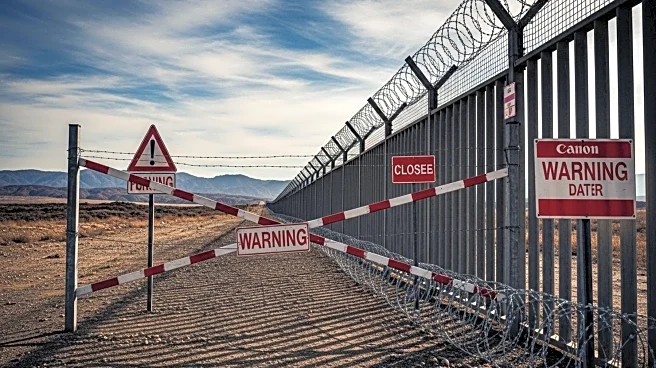What is the story about?
What's Happening?
The border crossings between Afghanistan and Pakistan remain closed for a second day following deadly clashes over the weekend. The conflict began when Afghan forces attacked Pakistani military posts, claiming to have killed 58 Pakistani soldiers. Pakistan reported lower casualties, stating 23 soldiers were lost and over 200 Taliban and affiliated terrorists were killed in retaliation. The closure has stranded hundreds of people, with key crossings like Torkham and Chaman shut down. The situation has heightened tensions between the two countries, with Pakistan accusing Afghanistan of sheltering militants responsible for attacks within its borders.
Why It's Important?
The closure of the border crossings impacts bilateral trade and movement between Afghanistan and Pakistan, affecting local economies and the livelihoods of those dependent on cross-border commerce. The escalation in violence underscores the fragile relationship between the two nations, with potential implications for regional stability. The involvement of foreign governments urging restraint highlights the international concern over the conflict's potential to destabilize the region further. The situation also affects Afghan refugees in Pakistan, complicating their return amid a crackdown on illegal residents.
What's Next?
The ceasefire currently holding may lead to negotiations for reopening the border, but the timeline remains uncertain. Both countries face pressure to resolve the conflict diplomatically to prevent further escalation. The international community, including Saudi Arabia, may play a role in mediating discussions to ensure peace and stability. The ongoing tensions could lead to increased military presence along the border, affecting future diplomatic relations and security policies.
















